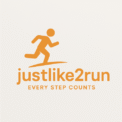Over 50,000 runners finished the New York Marathon in 2024. Some may have started as average runners, but they finished as Marathoners who achieved their goal. Here are some of my thoughts on how you can achieve this goal.
ADVICE:
If you are thinking about running a marathon “some day”, don’t wait, set it as a goal now and commit to it.
You have now overcome the largest obstacle, the limits that you set on yourself. Now it is time to put a plan in place that gives you the best chance to achieve your goal.
Make sure that you are physically able to take on this challenge.
If you have any concerns, see a medical professional before you start.
Establish a base level of running before you start marathon training.
If you have already run a couple of 5K races and at least one five mile training run, then you should be ready to start training for a marathon. If not, I suggest that you check out Advice For New Runners to get started.
Select a marathon that is at least 18 weeks out.
You could look for a local marathon that does not require you to travel. However, if your goal is to run a destination marathon, then you need to plan on arriving at that destination at least a couple of days in advance. Read reviews on the marathon to see what the course is like. If it is hilly, you will need to include hill workouts in your training. Look for reviews by first time marathoners to see if they recommend it.
Pace Groups
If you’re preparing for your first marathon, consider choosing one that offers pace groups. These groups are led by pacers who aim to complete the race at a designated pace. For instance, if your goal is to finish in five hours, you’ll need to maintain an average pace of 11 minutes and 26 seconds per mile. Marathons that include pacers typically provide a list of pace groups on their website, detailing the target finish times and corresponding mile paces. Reviewing this information ahead of time can help you find a group aligned with your goals.
Running with a pace group allows you to share the journey with others aiming for the same pace. During the race, you’ll have the chance to exchange stories and support one another as you progress toward the finish line. You don’t need to select your pace group until race day—by that point, your training and long runs will give you a good sense of which group suits you best.
Create a training schedule.
I recommend using Hal Higdon’s Novice 1 Training program. The plan consists of 18 weeks of training. Your goal should be to complete all works for each week. You are working to establish a base that will enable you to run 26.2 miles on a single run. Each week’s schedule is dependent on you completing the prior week’s work.
Nutrition and hydration
You need to test out your marathon nutrition plan during your training. You should not eat or drink something during the marathon that you haven’t tested during your training runs. Both books in the reference section below provide tips and advice on nutrition.
Injuries
Listen to your body. If you develop an injury during training, do not try to run through it. Have it checked out and if needed put your training on hold until you are better. Depending on where you are in the schedule, you may be able to adjust the plan and still make the marathon. If not, you can look into other marathons. It is not worth risking a major injury that could jepordize your future running plans.
Pre-Marathon Preparation
Begin reducing your training intensity around two weeks prior to the marathon. Personally, I avoid running during the two days leading up to the event, as this ensures my legs are well-rested and I feel eager to start the race. Prioritize getting as much rest as possible and steer clear of alcohol. The night before, enjoy a good meal, but be careful not to overeat. Lastly, prepare everything you’ll need for the race in advance.
Day of:
Eat a good meal about two hours before the start. Get to the race early. Give yourself time to relax and make a bathroom stop. You have done all the training. You are ready. When the race starts, resist the urge to go out too fast. Resist the urge to keep up with faster runners. Run your own pace. Celebrate each mile marker that you pass. That mile is behind you and you have one less mile to go. Take a drink at each water stop and use the water bottle you brought with you when you need a drink between stops. Start taking nutrition that you have used during training (energy gels,chews, …) about 30-45 minutes into the run. Then take additional nutrition based on a schedule that you used on long runs.
If this is your first marathon, your primary goal should be to finish. If you need to walk, alternate walking and running. You could walk for one minute and then run for five. Whatever works best for you. But try to commit to a specific schedule that will get you to the finish.
Finish!!!
When you finish, take time to celebrate your accomplishment. You did all the work, you completed your goal.
